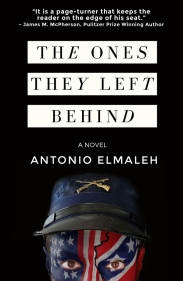
The states which Lincoln won in the election of 1864 are shown in red. McClellan won Kentucky, New Jersey, and Delaware. Notice that citizens of the Confederacy did not vote in the election.
It is dicey to make “the most” statements. History is constantly being written. Usually it is not recognized as history in the moment, but only when later generations have the benefit of understanding the larger context in which it unfolded.
I will go out on a limb and suggest that the 1864 election was the most important in our history for three reasons:
1. Only once before had our country held an election while the government was in danger of being toppled, during the War of 1812. There the threat was external. In 1864 the threat was much graver, it was inside us. That the election took place and went off without a hitch was living proof of the validity and vitality of the democracy. Lincoln and his Cabinet debated suspending the election on the grounds that the national emergency required drastic measures to preserve the government. (His suspension of habeas corpus exhibited such reasoning.) His ultimate faith in democratic government would not tolerate canceling the people’s right to express their preferences in the name of national security. He was well-aware, as a student of history, that such acts kill democracy and set the stage for dictatorship.
2. Had Lincoln lost, as he was convinced he would until Atlanta fell, his successor would have likely called for a cease-fire, negotiated a peace, and withdrawn Northern armies from the South. The platforms of Lincoln’s opponents all but avowed such positions and (unwittingly or otherwise) played into the hands of a Southern strategy that I believe did not call for winning the war militarily, but for grinding down the Northern populations’ will to endure lengthening casualty lists while pouring the national treasure down the black hole of civil war.
How unlikely was the success of such a strategy? We have witnessed it in our lifetimes. It is the strategy the North Vietnamese employed to win the Vietnam War.
Slavery would have continued in the South and spread into the West. Voting rights and property rights would have continued to be denied under the law to almost 40% of the Southern population. We ought to wonder if we would be a country now after free and slave governments and economies were permanently embedded across the continent once Lincoln lost the 1864 election and the war effort was abandoned.
3. For the first time, the Army played a crucial role. After four years of war, the average soldier knew, as Lincoln knew, that this was a fight to the finish and that it would take genuine leadership to wage the war with that grim reality foremost in mind. All too often the soldiers had been led by generals, (McClellan comes to mind) who were not in it to win it and who openly disagreed with Lincoln’s approach to fighting the war, as well as consistently disobeyed his direct orders on how to fight it. In any other time, such a general could have been charged with treason and imprisoned. McClellan won the Democratic party nomination and ran for President instead. Convinced “his” soldiers would vote for him in droves and carry him on to victory, he lost the soldier vote by 80%.
There is a very significant human dimension to this point. Soldiers were granted leaves to go home and vote. There, they were living examples of the resolve needed to defeat their Southern enemies. In Lincoln, soldiers saw similar resolve. A soldier’s endorsement, made by someone who was prepared to make the supreme sacrifice that their President asked of them, resonated with family, friends and neighbors well beyond any campaign slogan or rhetoric. Tens of thousands of soldiers went to the White House during his Presidency. They shook his hand and returned to their units with awe and gratitude that their Commander-in-Chief took time out of his day while trying to save the nation just to acknowledge them. Their personal testimonials went a long way with fellow soldiers when it came time to vote. In six crucial states, it was the soldiers’ vote that swung the decision to Lincoln.
Food for thought about what might have been if Lincoln had lost the 1864 election.


I wrote my own biographical essay on George McClellan. It’s on Google+ “They Also Ran. The losing candidates”, Pat Eakin. At one time there were Republicans who wanted to nominate their 1856 candidate John C Freemont. When the Democrats met for their convention they were deeply divided. McClellan had been a staunch Unionist, but he ran with a “peace Democrat”. I wonder if McClellan would have given up on his Union principles in order to achieve peace?
LikeLike
My McClellan essay is also on http://theyranforpresident.wordpress.com/2014/08/11/george-mcclellan/n a
LikeLike
I wonder as well. As you may have gathered, I am not a fan of Gen McLellan, so my first guess is that he would have sued for peace and let the South go.
LikeLike